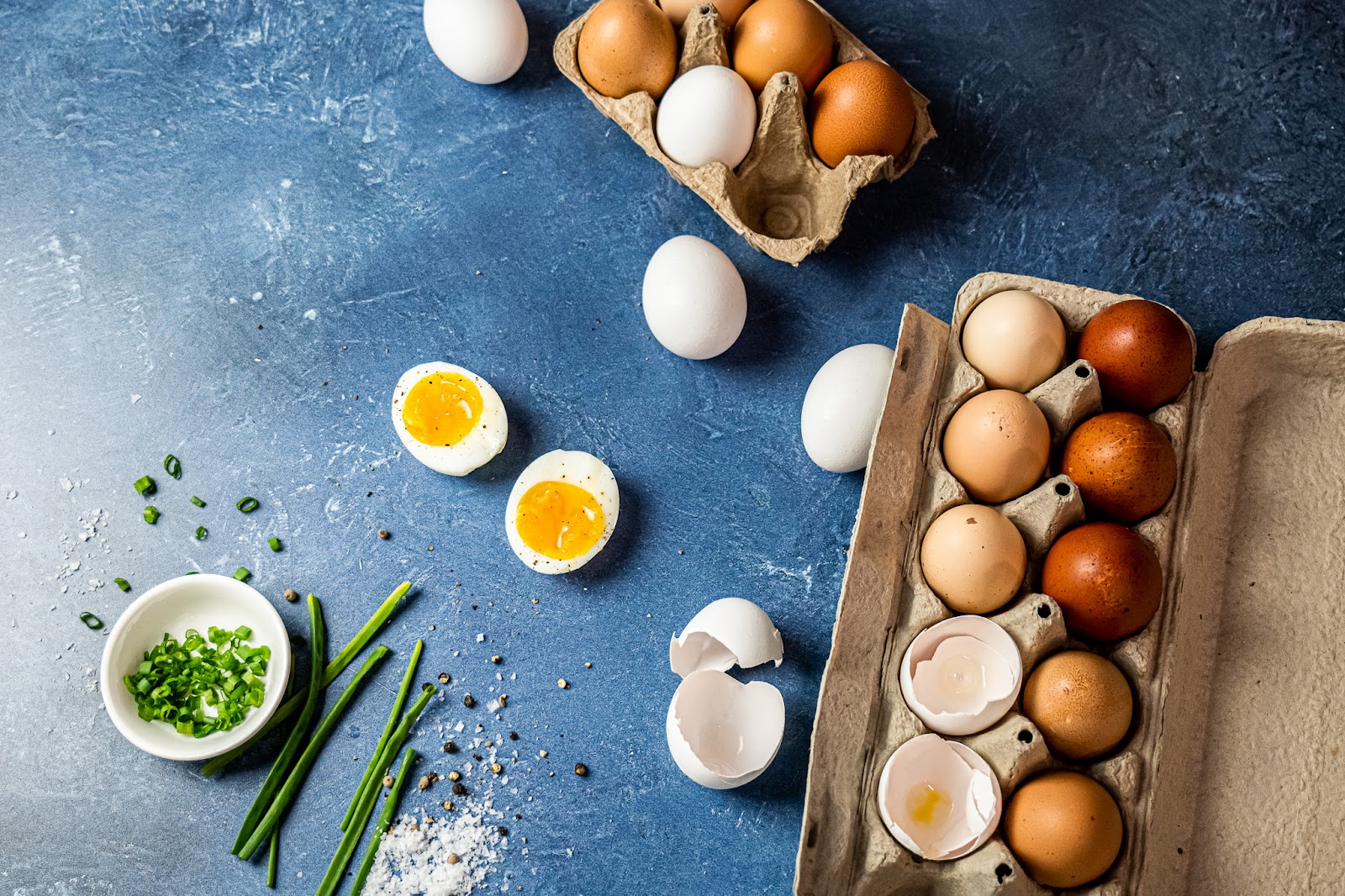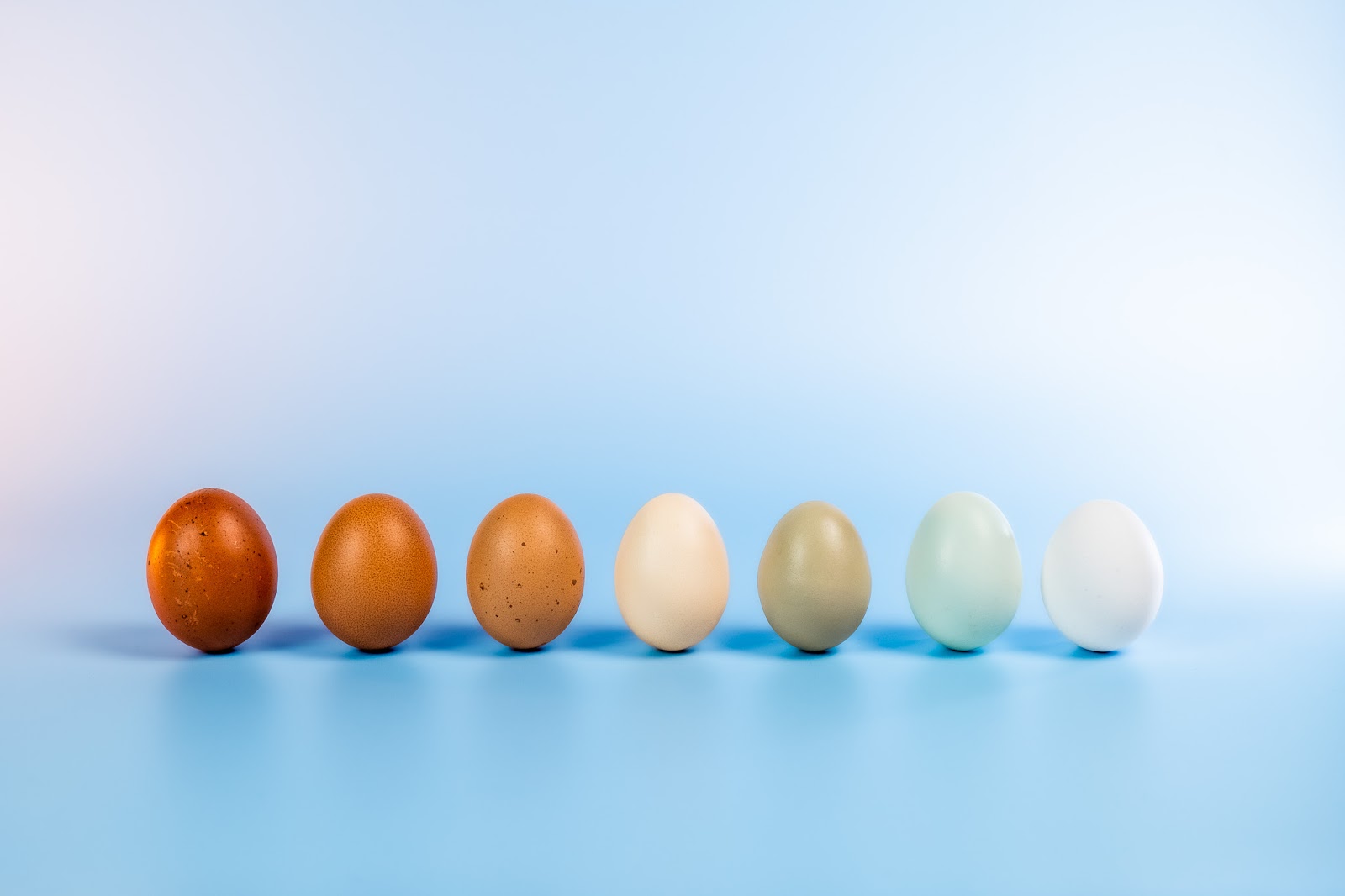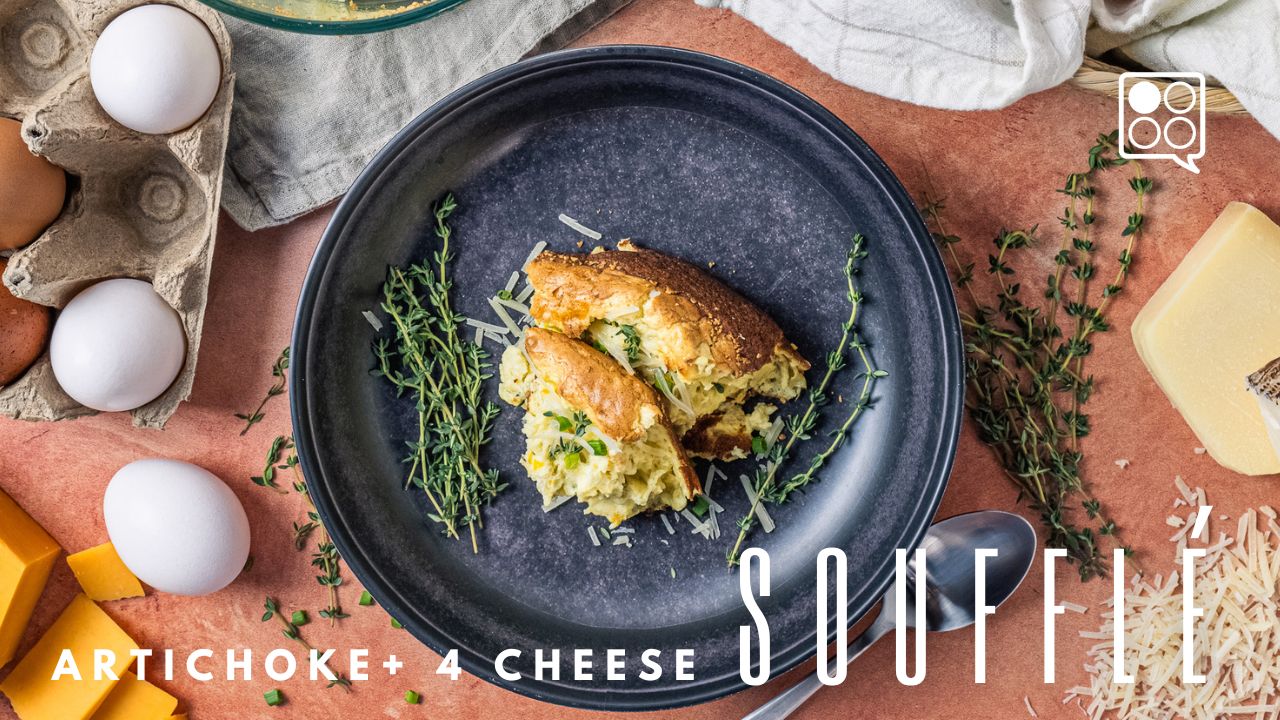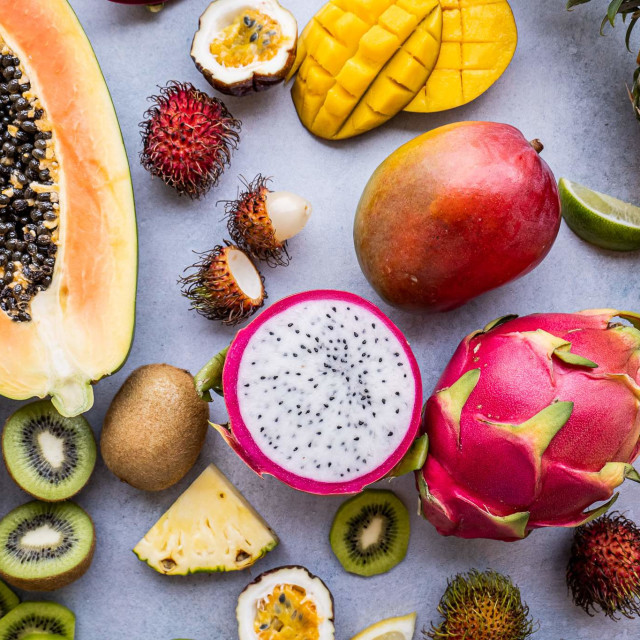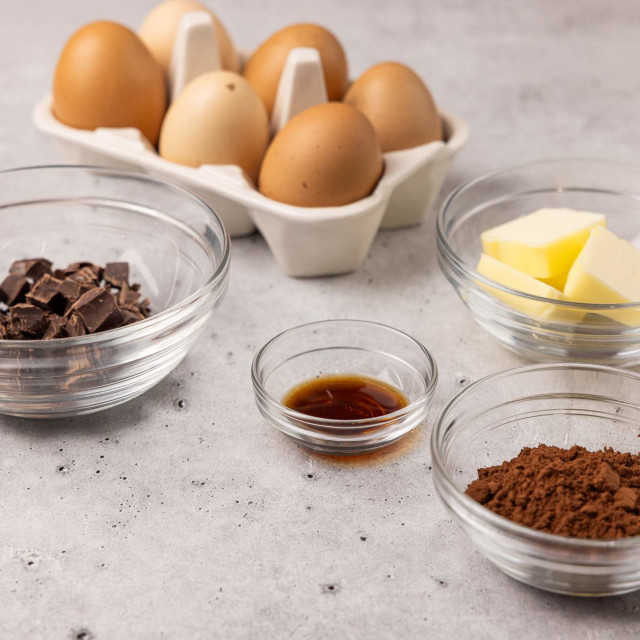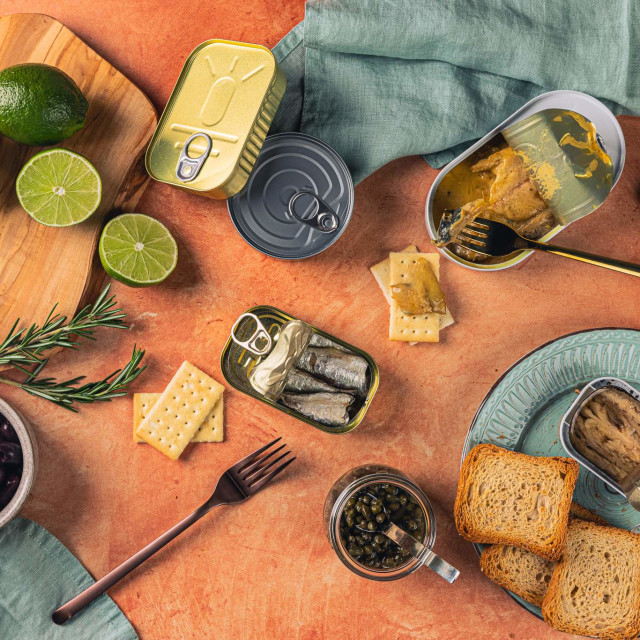Egg-cellent Ingredient: All You Need to Know About Eggs
As holidays like Easter approach, it's apparent how embedded eggs are into many people's diets and even holidays. Let's celebrate this "egg-cellent" ingredient with a guide to eggs, from how to use them to commonly asked questions, different cooking methods, and more.
What Are Eggs Used For?
These versatile ingredients are key to creating baked goods like carrot cake with cream cheese, golden brown rolls, emulsifying sauces, creating crispy fried chicken and waffles, and more. They provide an excellent source of protein, with 6g per egg. They're also a complete protein, containing all nine essential amino acids. Many people on a low-calorie diet will skip the egg yolk and use egg whites for their recipes, as it still offers protein but with a lower calorie count. You can use eggs for the following:
- Leavening
- Binding
- Emulsifying
- Thickening
- Coating
Benefits of Eggs
Eggs are incredibly dense in nutrients, vitamins, and minerals. Eggs contain lutein, folate, selenium, zinc, potassium, calcium, Vitamin D and so many more micronutrients! They're also packed with omega-3 fatty acids, can promote healthy cholesterol levels, and help reduce the risk of heart disease.
Egg Labels
In the U.S., eggs have a grading system developed by the USDA. This grading system scales from AA to B based on quality.
USDA AA - The freshest and highest quality eggs, firmer whites, have no defects, and have clean and unbroken shells.
USDA A - High-quality eggs similar to Grade AA with softer egg whites.
USDA B - May contain shell discoloration or irregular texture on the shell
Regardless of what grade, all eggs that are available at the grocery store are safe to eat. The grading system is based on aesthetics and not nutritional value.
Other Terms / Labels With Chicken Eggs
Cage-free - These chickens do not live in battery cages but do not have access outdoors. They have the ability to roam freely in their quarters.
Free-range - The hens have some access to the outdoors but don't necessarily roam freely.
Omega-3 - Omega-3 eggs are from chickens that have been fed regularly with flaxseed, resulting in higher omega-3s in the eggs themselves.
Pasture-raised - These chickens are raised in their most natural form. These chickens are raised with access to the outdoors on a regular basis and are able to live more natural lives.
Pasteurized eggs - Eggs have been rapidly cooked at the minimum temperature needed to destroy any bacteria without cooking the egg.
How to Properly Store Eggs?
In the US, it's best to store eggs in the fridge to help avoid salmonella and other similar bacterial diseases. They should be kept at 40F or lower to ensure they do not spoil while in the fridge. While many fridges feature a shelf shaped for an egg carton or individual eggs, it's best to store them on a shelf in the fridge. As fridge doors are opened frequently, anything on the interior shelves does not maintain a consistent temperature. Eggs on a shelf stay at a constant temperature, allowing them to stay fresh for longer.
Tip: If you don't have an egg holder or container, you can store a dozen eggs in the fridge in the container they came with. This container will help you avoid cracking or breaking your eggs in the fridge.
Different Ways to Cook Eggs
Many methods can be used to cook chicken eggs, which vary depending on your intended recipe and preference for consistency. For example, pan-frying an egg works well for a breakfast sandwich. A hard-boiled egg is excellent for an egg salad sandwich. The egg-cooking possibilities are endless, from baked eggs to sunny-side-up eggs!
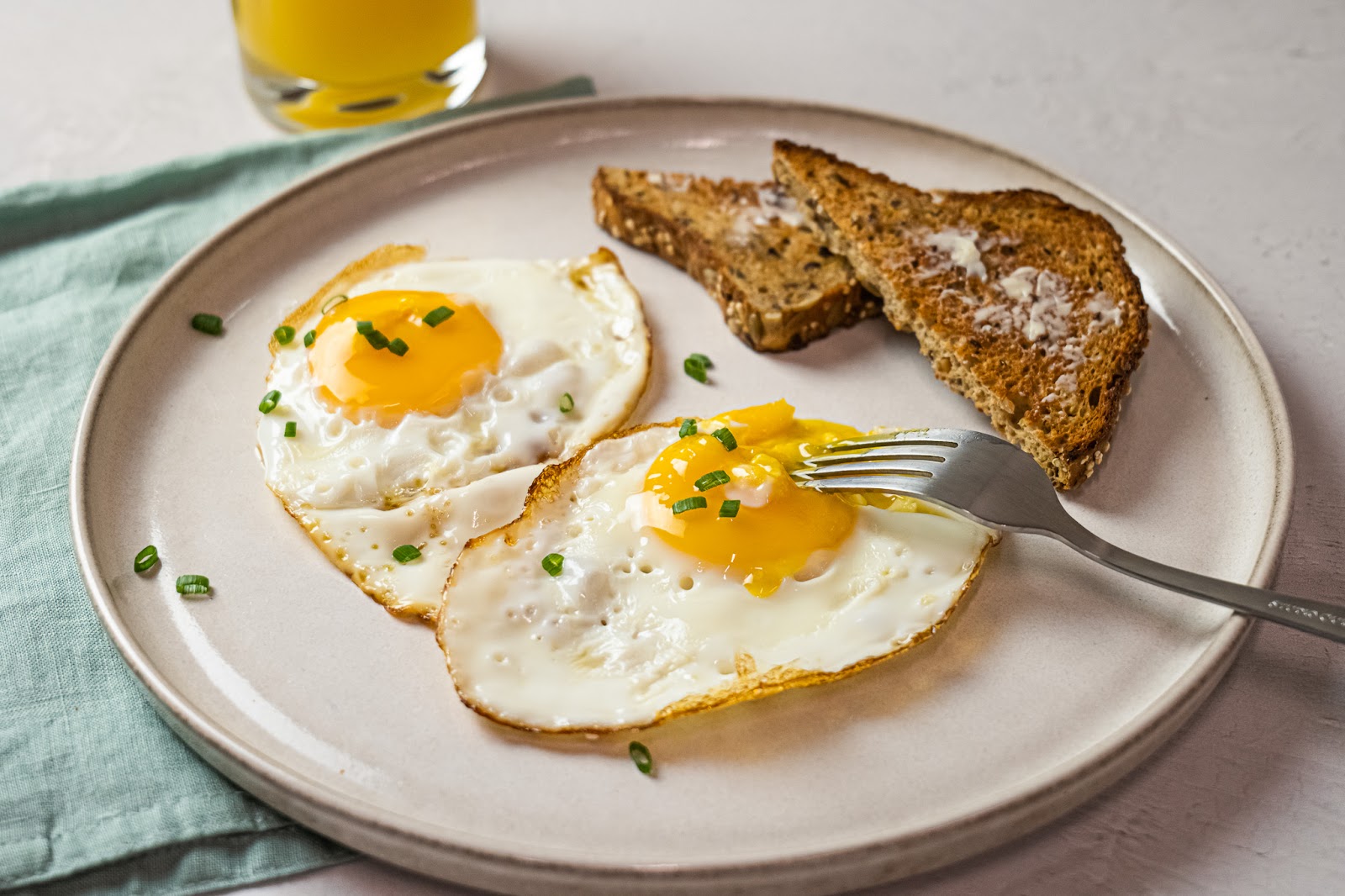
Fried Egg
Frying eggs in a pan are one of the most common methods for cooking eggs. There are many ways to fry an egg, depending on how cooked you want the white and yolk sections. For example, an over-easy egg has a very runny yolk and is excellent for dipping items like toast. You can also create over medium, which has no runny egg whites, or over hard, which has fully cooked yolks and whites.
As mentioned, fried eggs are great for breakfast dishes like sandwiches. However, you can also add them to burgers and savory oatmeal. They also make a great protein-packed side to dishes like a sausage and gravy biscuit ring.
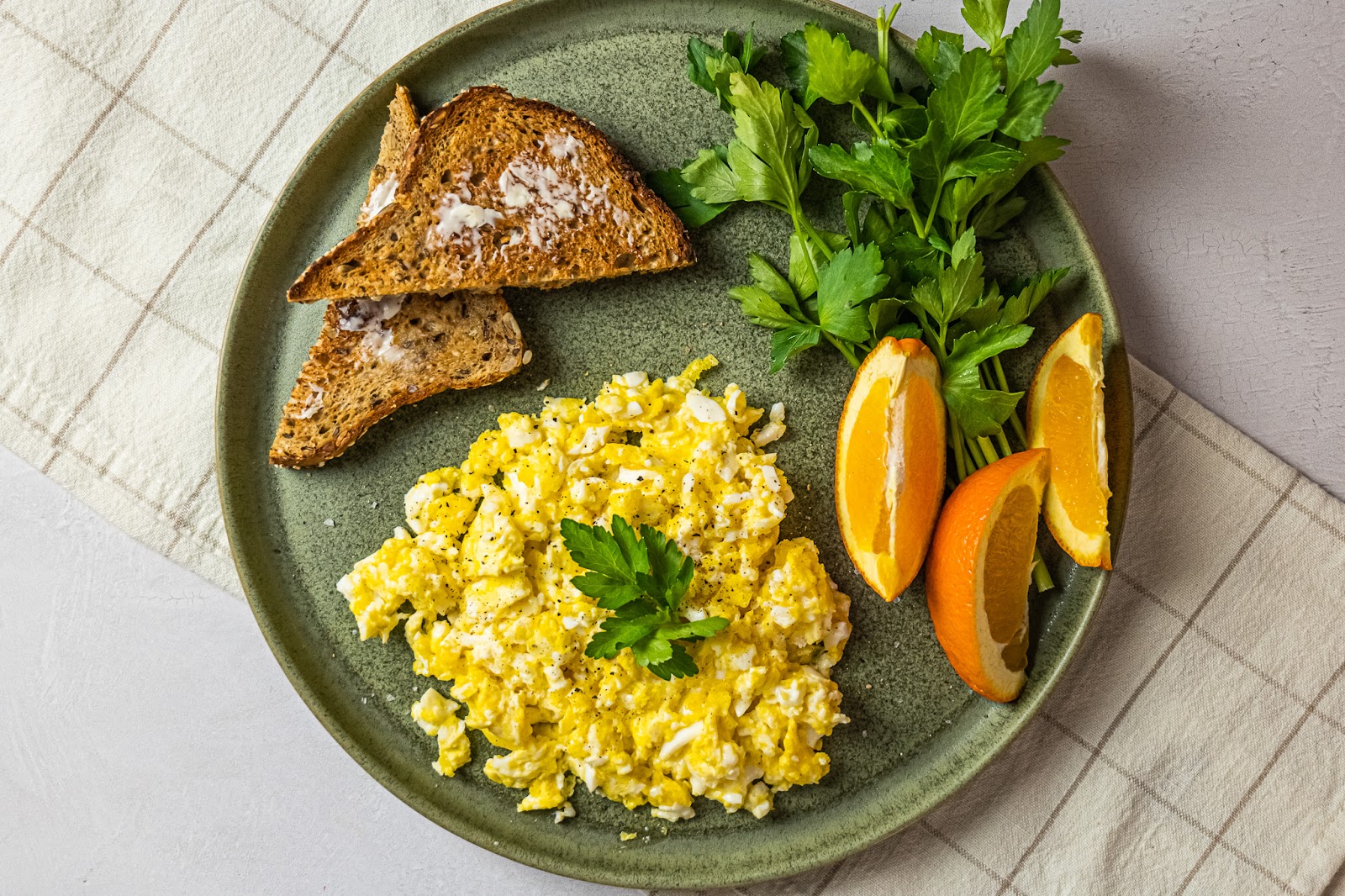
Scrambled Eggs
You can also scramble eggs in a frying pan. Instead of cracking the egg directly into a pan and flipping it to cook it to the correct consistency, you'll need to scramble the eggs with a dash of milk in a bowl. Then, pour the egg mixture into the pan. You can cook soft scrambled eggs, which offer a softer consistency, by folding them in the pan using a spatula. If you prefer your eggs completely cooked, you can hard scramble them instead. For this version, you'll be scrambling the eggs in the pan as they cook instead of scrambling them in a bowl.

Omelets
Instead of leaving scrambled eggs plain, you can turn them into an omelet. To create an omelet, you'll scramble eggs in a pan until they start to stabilize in a circular shape. Then, you can add whichever toppings you please, such as chopped veggies, cheese, and meat. The final step is flipping half the omelet so it forms a semi-circle before serving it on a plate.
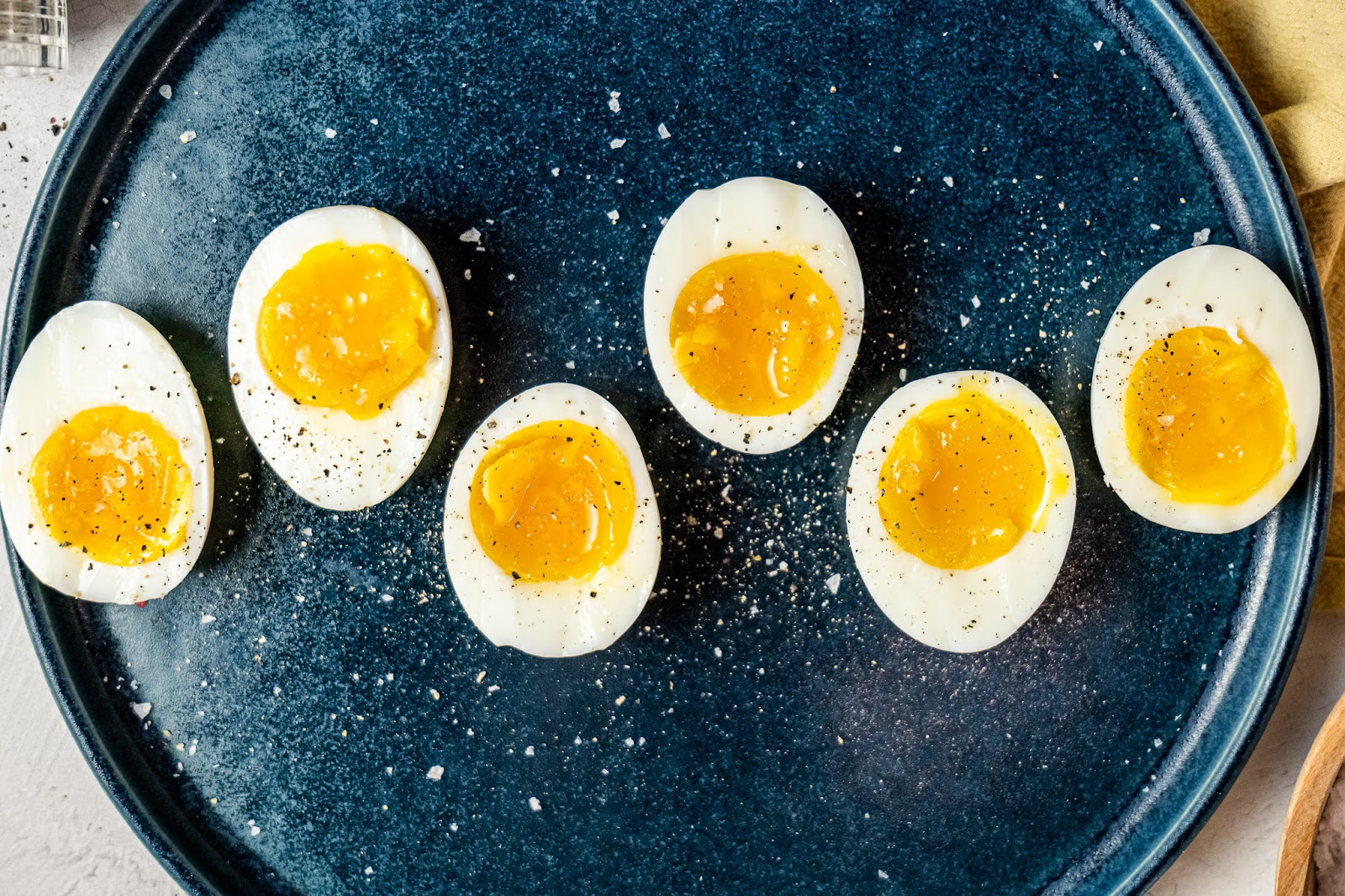
Soft Boiled Eggs
A soft-boiled egg is similar to a hard-boiled egg, though it's cooked for fewer minutes. This shorter cooking time allows the eggs to have a soft, gooey egg yolk when you bite into them. Yet, the egg whites are cooked through. Boiling for six minutes is usually sufficient time to create a soft-boiled egg. Most people consume soft-boiled eggs as-is with a sprinkle of salt. However, they're also great as a topping for ramen or in other Asian dishes.
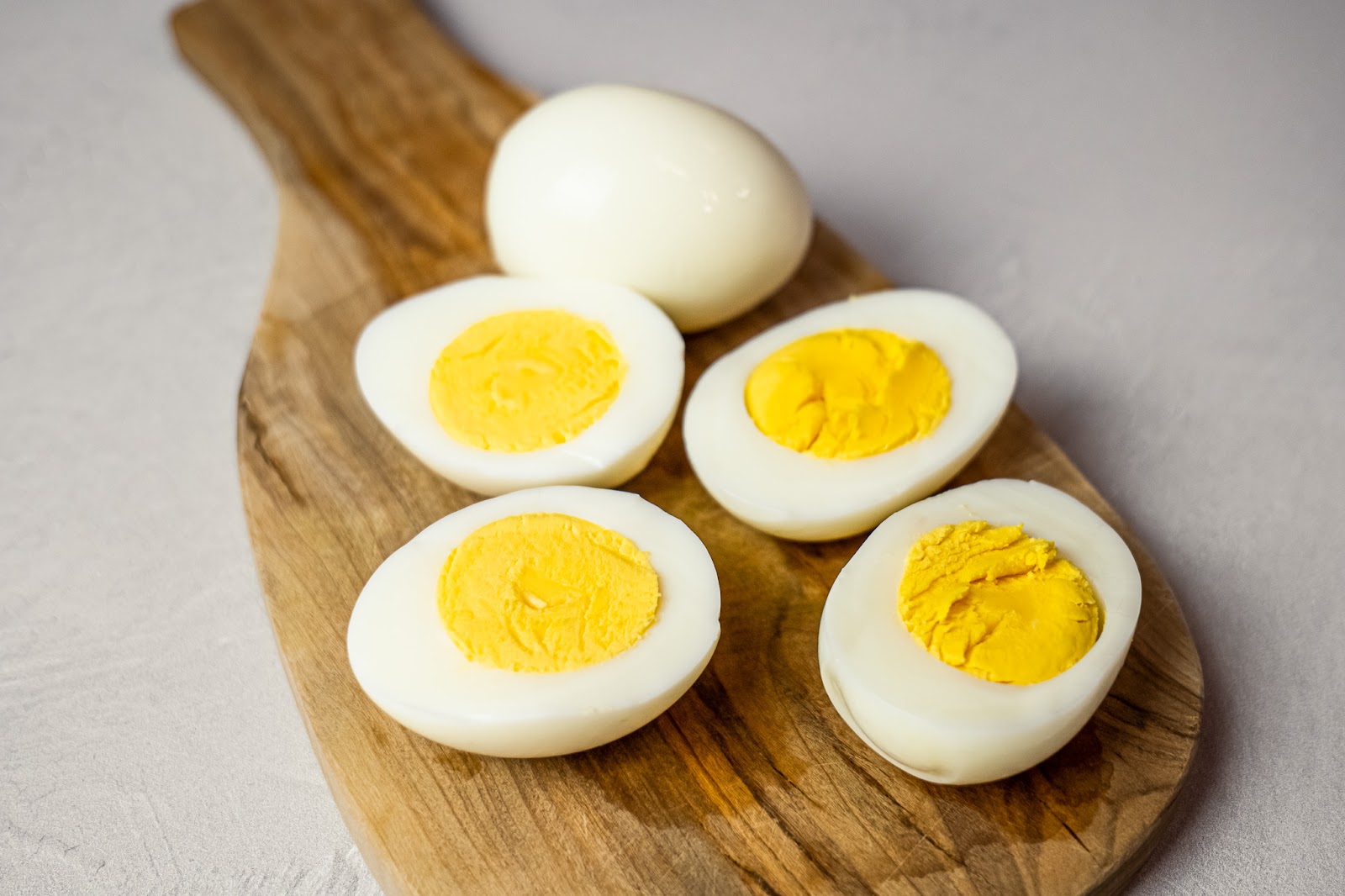
Hard Boiled Eggs
This egg-cooking method is named after the consistency of the egg once it's cooked. Hard-boiled eggs are boiled in their shells for about 12 minutes. Once cooled, you can crack them and eat them with a sprinkling of salt. Or, slice them and use them in salads or sandwiches.
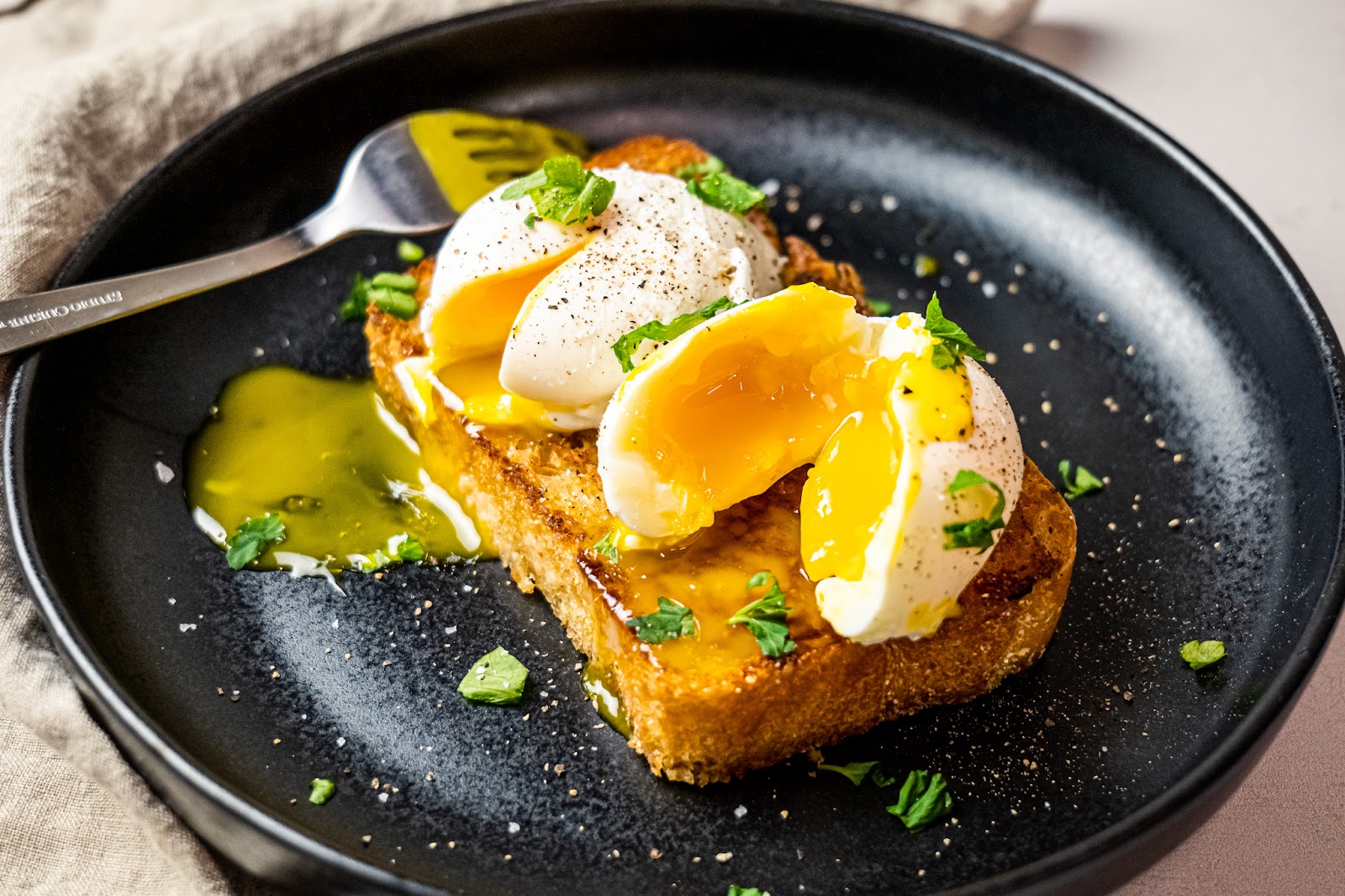
Poached Eggs
Poached eggs go through a similar cooking experience as soft and hard-boiled eggs. However, they're cooked without their shell, so they feature a softer consistency. The whites are cooked through, yet the yolks are runny when using this cooking method.
The key to a perfectly poached egg every time is creating a whirlpool with your almost (not quite) boiling water. Then, slowly lower the deshelled egg into the middle of the swirling water. This method allows the egg whites to stay together instead of spreading out.
You can use poached eggs for breakfast dishes like eggs benedict, eggs florentine, and eggs mornay.
How Did Eggs Become Associated With Easter?
Eggs are undeniably intertwined with Easter every year. Whether you celebrate with a basket full of chocolate and plastic eggs or an egg hunt, it's clear this holiday has become synonymous with eggs of all forms.
While there's no exact date Easter and eggs became associated, their connection has been traced back to medieval Europe. During this time, eggs were given as gifts, signifying rebirth and new life at spring festivals. This tradition is thought to have inspired the association with eggs and Easter.
In medieval times, people were prohibited from eating animal products, including eggs, before Lent. Of course, hens would still lay eggs during this time. To avoid food waste, people would hard boil the eggs so they would last longer. Then, when Lent ended, the eggs would be distributed to the community.
Through the years, the tradition of consuming and giving eggs on Easter has remained the same. However, the types of eggs have evolved to include sweet eggs, plastic eggs filled with goodies, and colorful hard-boiled eggs.
Chickens eggs, while the most common, are not the only form of eggs that people eat. Around the world, people eat whole eggs including quail, duck eggs, and fish eggs (caviar).
Need some "egg-xtra" ways to use eggs in the kitchen? Check through our Four Cheese & Artichoke Soufflé, perfect for lunches and brunches this spring and summer season.
